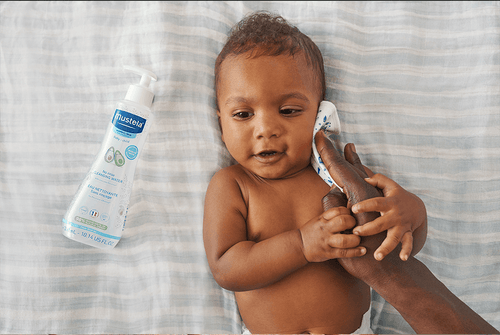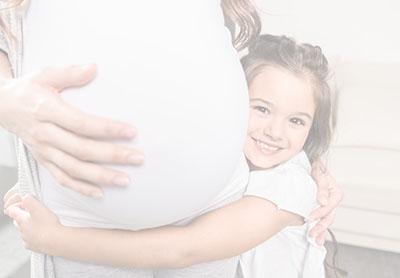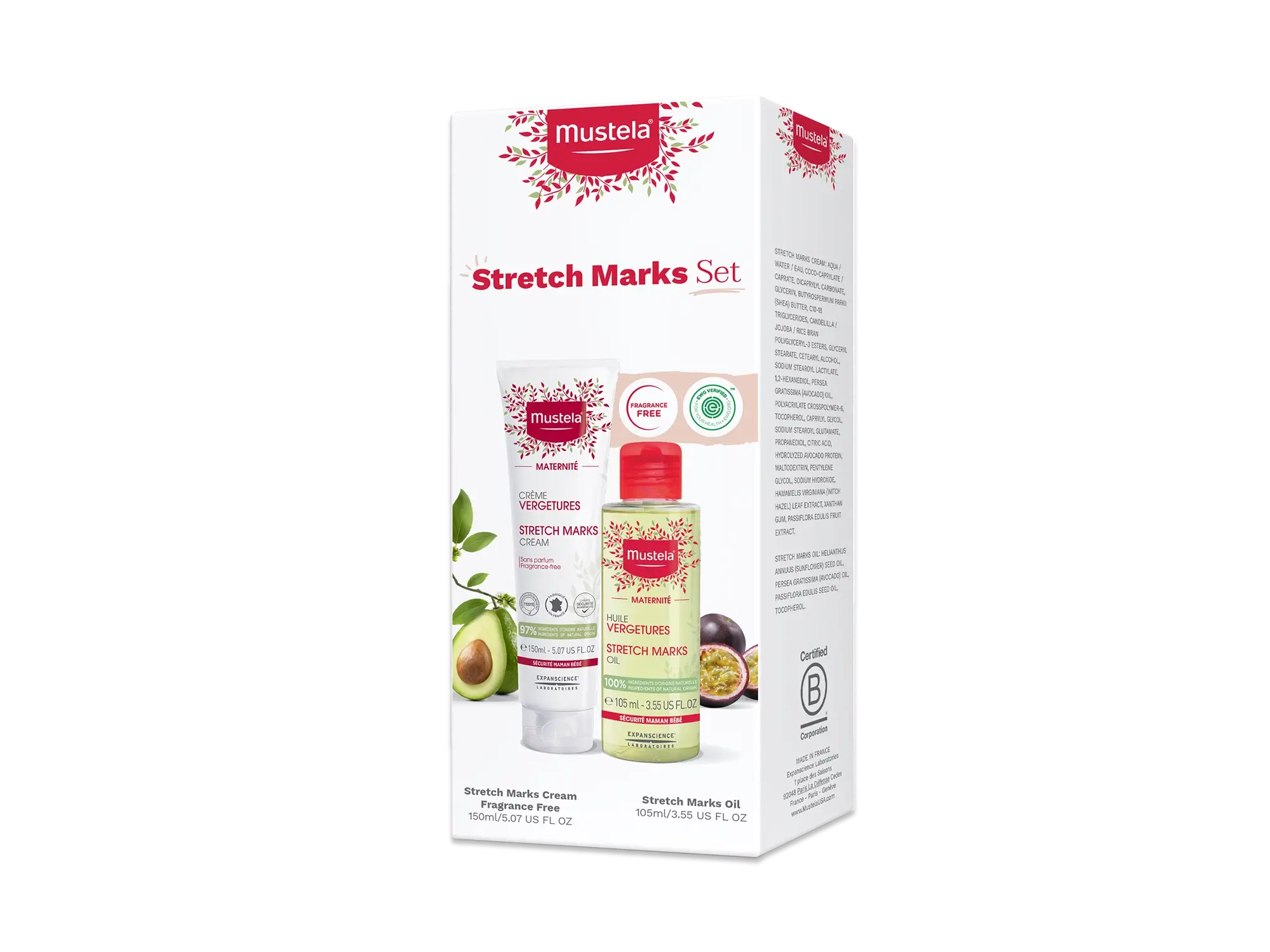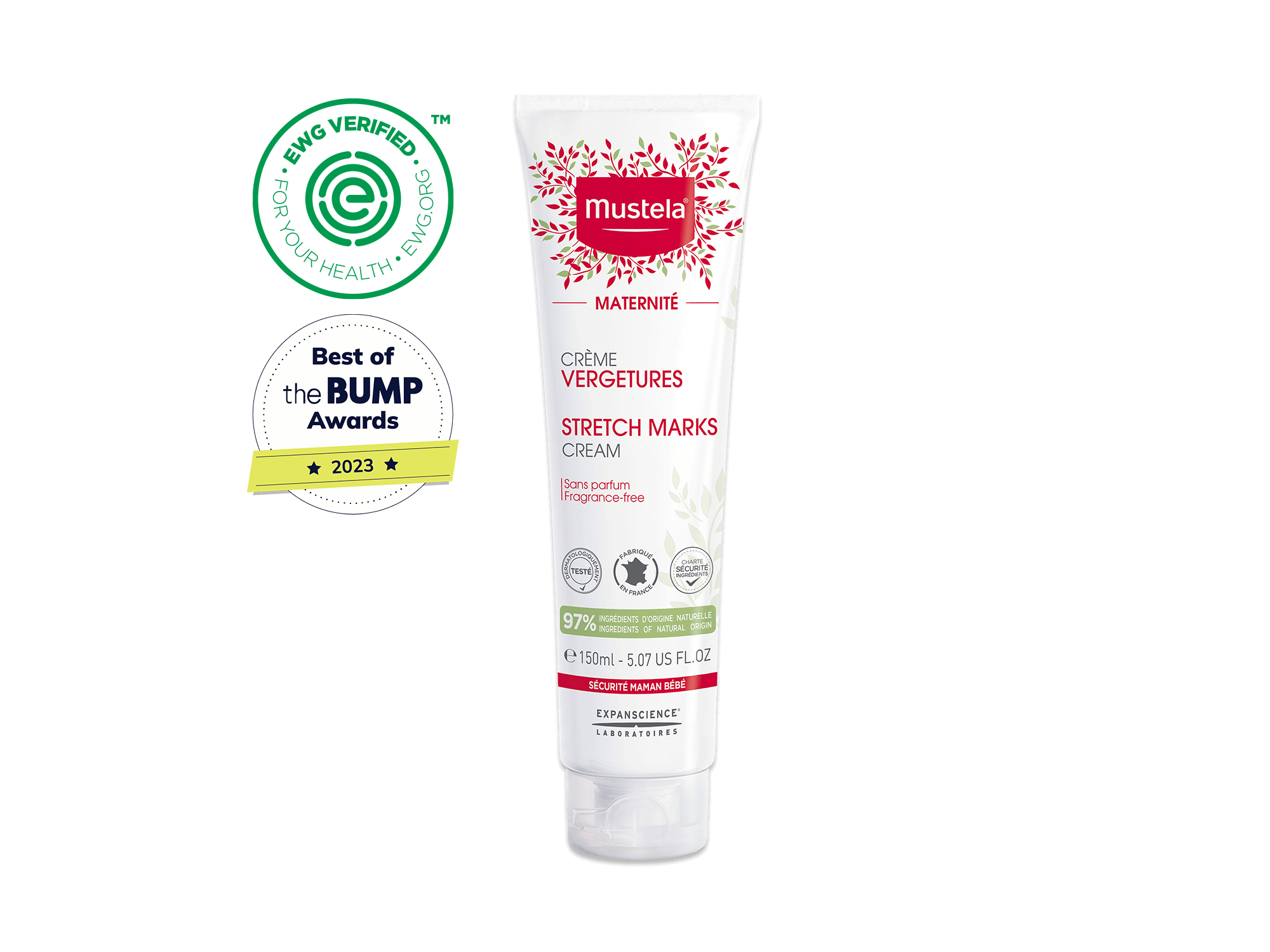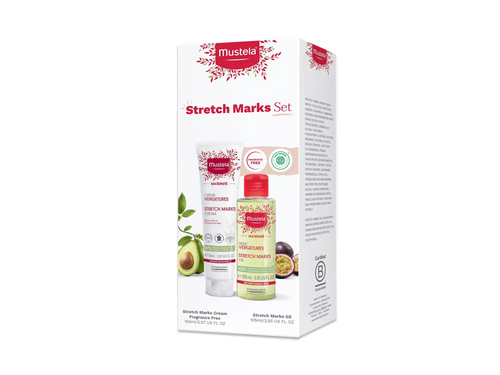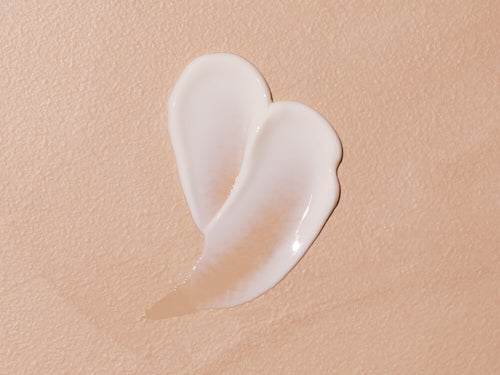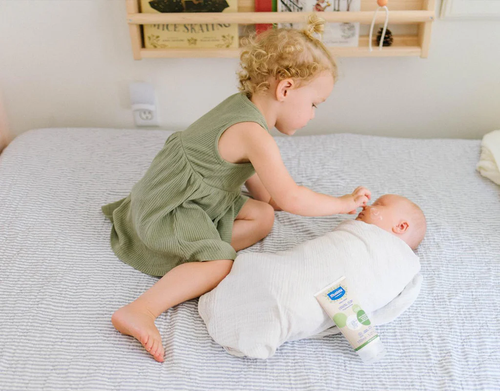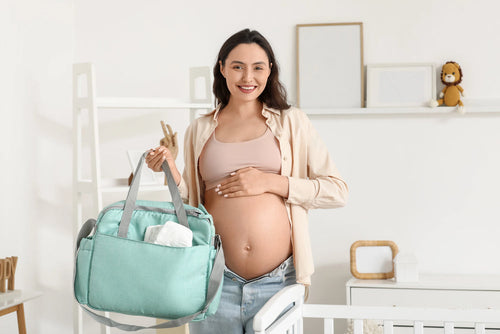Congratulations! You’re pregnant and the great miracle of life has started inside you! Over the next 9 months, the small egg that was just half a millimeter (less than a fiftieth of an inch) in length the day after conception will develop into a baby approximately 50 centimeters or 20 inches long. Month by month, see how your little one will grow inside your belly!

FIRST MONTH
Your baby
You have been pregnant for only a few days, but the new life that is blooming inside you is already very active. The meeting of a spermatozoon and an ovum created an egg less than 0.5mm across (less than 0.02 inches), which implanted itself into your uterus 7 days later. The egg is now going to develop very quickly.
By the end of the 3rd week, your future baby is no longer just an egg: firmly attached to the uterine wall, it has become an embryo in its own right.
By the end of the first month, your baby is about 4 mm or a quarter of an inch long and is as light as a feather. The buds that will later grow into his arms appear on the 26th day and the buds of his legs on the 28th day. Your baby has a very large head with two black dots where his eyes will soon take shape.
You
Very quickly, the first signs of pregnancy appear. You may experience a sudden desire to take a nap after eating, or no longer be able to stand certain smells. You may also notice changes in your breasts, which are tight, the nipples wider and darker, and the veins under the skin quite visible.
Take care of your body every day by carefully moisturizing your skin and applying a product specifically formulated for your breasts. From the very start of your pregnancy up until one month after delivery, remember to also apply a product to reduce the risk of stretch marks appearing. This should be applied on a daily basis.
SECOND MONTH
Your baby
Your baby now looks like a small seahorse that is coiled around its spinal column. Your baby will gradually grow and straighten.
On the 22nd day of pregnancy, your baby’s circulatory system is already functional. By the end of the 4th week, the foundations of the nervous system and spinal cord are in place. Both hemispheres of your baby’s brain have also formed. The placenta continues to develop, ensuring the transfer of essential nutrients for your baby’s growth.
The eyes, ears and mouth slowly start to appear. Your baby’s eyelids also appear, as well as the rough outline of his nose. His arms and legs begin to grow, even though they are not yet clearly distinguishable. His skin is very delicate. His head remains pitched forward toward the chest.
Your baby’s first internal organs also build up gradually: the digestive and respiratory tracts begin to develop, and the sexual organs appear. The exterior sexual organs, however, are not yet formed; the sex of your baby will not be visible until the 16th week.
Eight weeks after conception, your little one measures approximately 3 cm or one-eighth of an inch and weighs about 3 gram - the equivalent of a tenth of an ounce. He slowly loses his seahorse appearance and begins to straighten. His head begins to take shape.
You
In the 6th week of pregnancy, your uterus is the size of a tangerine. Changes to your body are becoming more and more noticeable. You begin to suffer from the minor discomforts of pregnancy such as fatigue, nausea, heavy legs, and upset stomach. To soothe your tired legs, you can apply a special product in a massaging motion, moving from the ankles up to the knees. Take advantage of these moments of self-care to relax!
THIRD MONTH
Your baby
Your baby is no longer an embryo, but a fetus. All of his organs are in place and continue to develop
His face becomes more defined and his arms and legs start to grow. His arms and legs are not yet long enough, however, to touch the wall of your uterus, and so you cannot feel him. His head is still quite large in comparison to his body. He can now lift it up.
In a few weeks, your baby will grow at an amazing pace; whereas he measured a mere 3 cm (an eighth of an inch) at the end of the second month, he’ll be around twelve centimeters or almost four inches long and weigh 90 g (3 ounces) by the end of the third month!
You
As for you, your blood volume increases, speeding up your heart rate. You may feel easily winded. Starting at the 10th week, you should be less affected by frequent urges to urinate, since your uterus starts to move up into your abdominal cavity and your bladder is less compressed. Other source of relief: your morning sickness should now gradually wane.
FOURTH MONTH
Your baby
Your baby moves quite a bit and you may start to feel him moving. Do not worry, however, if you don’t feel anything yet; experiences vary significantly from one woman to the next, and it usually takes longer to feel the baby moving in your first pregnancy.
Your baby’s head, very large during the first months, is now more in proportion with his body. Your baby’s brain structures develop and your baby becomes sensitive to touch.
Your baby becomes covered with a thin blanket - the “lanugo” - and his first hair start to grow. His body hair and nails grow. His eyes stay closed, protected by the eyelids.
By the end of the fourth month, your baby is almost 20 cm (8 inches) long and weighs around 250 g (almost 9 ounces).
You
Your belly starts to show and those most observant around you will start to notice a change. You are glowing and are in top form. Enjoy it!
FIFTH MONTH
Your baby
Here you are, already halfway through your pregnancy! Your baby’s heart is now big enough to be heard beating with nothing but a stethoscope.
Your baby moves a great deal and often gives you little kicks. Very fine hair has grown on his head and his skin is covered with vernix caseosa, a sort of protective paste of sebum and epidermal cells. His skin thickens, but he does not yet have very much subcutaneous fat and so he is still wrinkly in appearance. His fingerprints and nails appear clearly. He sucks his thumb and his feet.
The sex of your baby is now clearly visible. If it’s a girl, all of her genital organs have formed (vagina, uterus, fallopian tubes and ovaries).At your next ultrasound, you can learn the sex of your baby if you so wish!
Your baby is continually growing taller and filling out; by the end of the fifth month, your baby is almost 30 cm (12 inches) long and weighs almost 650 g (1.5 pounds).
You
Your body temperature rises because of the hyperactivity of your thyroid gland. You breathe more and may feel hot flashes. Your skin may also become irritated. Because of the increase in your blood volume, your legs may hurt. Continue to apply care products that help to soothe these minor pregnancy-related discomforts, and take time to rest.
SIXTH MONTH
Your baby
During your sixth month of pregnancy, your baby fattens and continues to mature. He gradually becomes viable for outside the uterine environment. Your baby’s eyebrows become defined and his hair grows. His muscles develop throughout the body and your baby rounds out in general, particularly at the buttocks and shoulders. His lungs are not yet mature, however.
By the end of the sixth month, your baby is about 32 cm (12.5 inches) long and weighs about 925 g (2 pounds).
You
Your belly is now very round and has perhaps started to weigh on your back and legs, rendering physical effort and maintaining a standing position increasingly difficult. Even if you have not yet taken leave from work, it’s time to put your feet up and take care of yourself; find help for your daily tasks and rest as much as possible!
SEVENTH MONTH
Your baby
Your baby’s senses become active; he can now touch, feel, and hear, and is discovering taste by swallowing amniotic fluid. His eyes open and he is sensitive to light.
His body fills out thanks to the layer of fat that starts to build under his skin, and he loses his wrinkled appearance. During this trimester, your baby’s energy needs increase. His stomach and intestines are functioning.
By the end of this month, your baby weighs just over 1.5 kg (3 pounds) and measures about 38 cm (15 inches).
You
Your belly is becoming more and more unwieldy and you become easily winded by daily motions that seem more difficult than usual. You are tired and probably want to regain your previous physical ease. Be patient... you will soon be meeting your baby!
EIGHTH MONTH
Your baby
Your baby starts to take on the chubby look of a newborn. His arms and legs lengthen and his bones continue to harden, while still leaving a few empty spaces in the skull so that his brain can continue to grow, even after delivery.
The cortex of your baby’s brain develops and your baby becomes sensitive to pain. He drinks much amniotic fluid and develops his sense of taste.
By the end of the eighth month, your baby weighs close to 2.5 kg (5.5 pounds) and measures about 46 cm (18 inches).
You
Your baby starts a phase during which he will gain a significant amount of weight. Be careful not to do the same! It is often during this last month of pregnancy that the pounds are piled on. Try to keep an eye on what you eat, without actually dieting; you’ll thank yourself after delivery.
NINTH MONTH
Your baby
Your baby is finally ready to be born. He slowly starts to drop down into your pelvis and can now be born at any time. Your baby will spend these last few weeks gaining weight and strength in preparation for the big day.
Inside your belly, which is now stretched to the extreme, your little one no longer has much space to move around in, but you now feel even the smallest of his movements more than ever.
All of your baby’s physiological functions are operating normally, and all of his organs are mature - including his lungs, which are ready to function. Your baby is preparing for his first contact with the light of day.
By the end of the ninth month, your baby weighs about 3.3 kg (7 pounds 4 ounces), and measures about 50 cm (19.5 inches).
You
You are now in the final stretch! Very soon you will finally be holding your baby in your arms. Take advantage of these final days to relax as much as possible so that you are as calm and rested as possible when it’s time to give birth.

